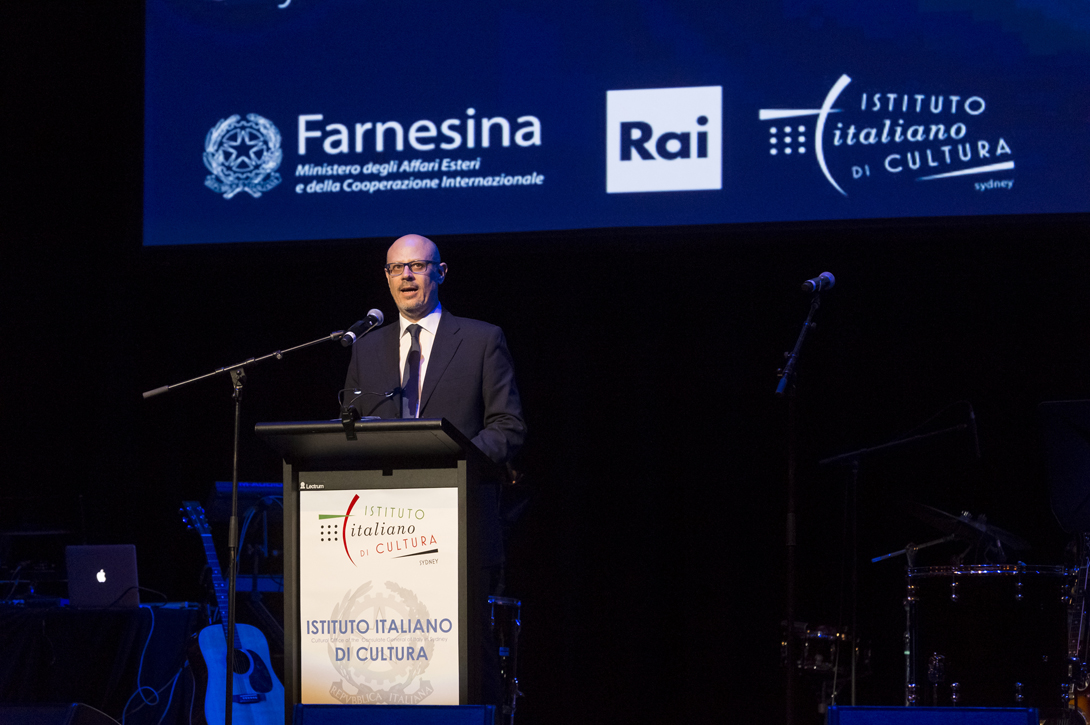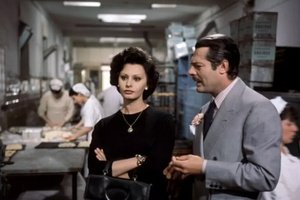The institute’s offices, located on York Street in the heart of Sydney’s CBD, are a testament to Italian culture.
Everything from the lights to the coffee tray are made in Italy and showcase the fine craftmanship of Italian décor.
After four years as director of the Italian Cultural Institute, Guarneri has mixed feelings about returning to Rome.
“I’ve had such a wonderful experience in this role and I’m so grateful to the Italian community for their support,” he said.
“I have connected with so many professionals, artists and members of the community through the institute’s initiatives.
“The Italian community has been very welcoming and my time here has been enriched by their input.”
Guarneri, who studied a law degree and completed his masters in ‘politics, economics and European culture’, is also an art lover and architecture afficionado.
During his four years as director, he dedicated his time to promoting the arts and solving a range of bureaucratic and financial issues that many expatriates struggled with.
“When I was in São Paulo, in Brazil, a local politician told me that everyone there wants to build viaducts and nobody wants to build the subway,” Guarneri said.
The meaning was clear to the director: the bigger and flashier a project, the more a bureaucrat would be lauded – but the unseen work is often more necessary.
“I took on the issues relating to our premises,” he said.
“I tried to solve the problems that may not have been of great interest to the public but that were limiting our efficiency as an office.
“Directors of cultural institutes are managers who have to take care of all aspects of a working office: the financial, organisational, human resource components.
“If one of these areas isn’t functioning properly, the office can’t offer the public the help they require.”
These problem-solving skills are what Guarneri will need to apply to his new role, which will involve improving the overall management of Italian Cultural Institutes across the globe.
“We’ll see what happens,” he said.
“I’ll spend some time in Rome – a city I’ve had a conflicted relationship with – and then we’ll see what the future holds for me.”
Guarneri has previously worked in São Paulo and Madrid, as well as Sydney.
The director found his Australian experience to be unique – due in no small part to the COVID-19 pandemic.
“I must say that we’ve been very resilient and have made the most of the technology that became the ‘new normal’ for events and services during the lockdown,” he said.
“Unfortunately, we did have to cancel some events, like the Zucchero and Mario Biondi concerts.”
Guarneri’s other initiatives have had lasting impacts on the Italian community, including the recent Battiato tribute concert, Riccardo Muti’s tour in 2018, and the La Scala Theatre Ballet Company’s tour in the same year
These events have created a wealth of collaborative work between the Italian Cultural Institute in Sydney and Italian artists living in Australia.
“We’ve expanded our relationships with other institutions and organisations that also promote the Italian culture,” Guarneri said.
“We now collaborate with various film festivals, which we work with annually.
“I’ve also tried to create alternative cultural relationships with Italian artists from various countries, which I consider vital, as I have always believed that sharing culture promotes unity and peace, and helps society to grow.”
One of the director’s own cultural passions is architecture.
“When I was a child travelling to cities with my father, I would wander around museums and monuments alone,” he said.
“After settling in a place, I can date any building to within a 20-year period.
“In Sydney, it’s a little simpler, and I find I can get that accuracy to within 10 years.”
A father of four, Guarneri has placed special focus on connecting the institute with the youth, encouraging emerging artists and supporting NSW youth associations.
“I strongly believe in young people and that’s why I’ve tried to increase their participation in cultural initiatives and exhibitions here in Sydney,” he said.
At the end of June, Guarneri’s successor will be tasked with continuing the director’s great legacy.












